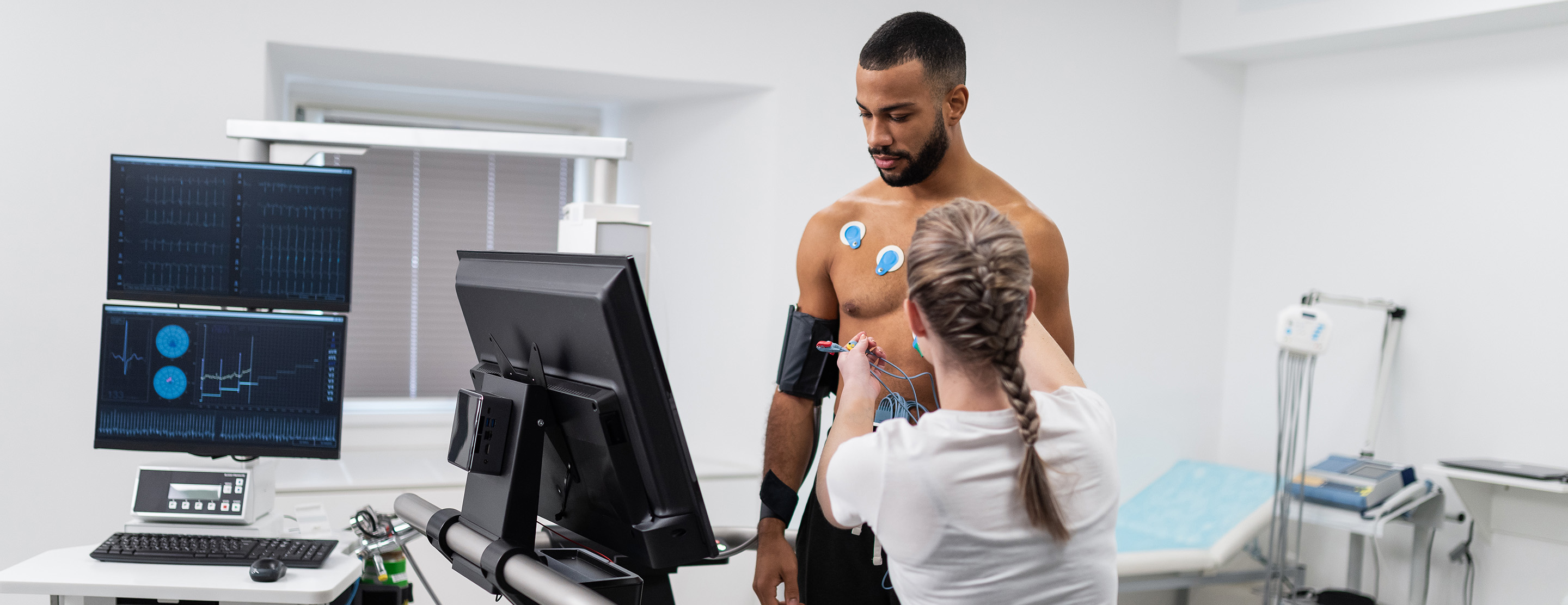The UCSF Health Stanyan Hospital Cardiology Services Division offers several types of cardiac and stress tests. Depending on your particular needs, a test may be non-invasive, minimally invasive or mildly invasive. The length of each procedure varies depending on the type of stress test necessary.
Cardiac Testing
Electrocardiogram: An electrocardiogram, better known as an EKG, is a recording of the electrical activity of the heart. It is a diagnostic ultrasound that provides images of your heart's valves and muscle without using x-rays or surgery.
Transesophageal Echocardiogram: An echocardiogram (or TEE) is a diagnostic ultrasound test that allows a cardiologist to look at the heart from a tube that's passed into the esophagus (the tube that leads to your stomach).
Stress Testing
When dealing with cardiac diagnosis, it's often very helpful to measure levels of stress. Your doctor may request a stress test as a way to evaluate your heart.
Adenosine Stress Test: An adenosine stress test uses a medication called Adenosine to dilate the coronary arteries. This test is commonly used for patients who are unable to walk on a treadmill.
Dobutamine Stress Echocardiogram: A Dobutamine stress echocardiogram is a type of chemical stress test that uses a medicine called Dobutamine to raise the heart rate in stages. This test is used for patients who are unable to walk on a treadmill.
Exercise Stress Test: An exercise stress test compares the heart's electrical activity at rest and under exertion. While you walk on a treadmill, the cardiologist can determine if all areas of the heart muscle are getting enough blood.
Sestamibi Stress Test: A sestamibi stress test uses a very small amount of a radioactive substance called Sestamibi to provide images of the heart and information about the blood flow to the heart. The test is considered extremely safe.
Stress Echocardiogram: A stress echocardiogram is a procedure where ultrasound pictures are taken of your heart before and immediately after periods of exercise.
Other Tests
The Tilt Table Test: The Tilt Table Test is a diagnostic test used to evaluate the causes of fainting. A technician will have you lie down on a table, slowly tilt the table upright and monitor your heart rate and blood pressure. It's recommended that you refrain from eating six hours before the test. You can resume normal activities following the test.
Holter Monitor: This is a safe, painless and portable way of producing a 24-hour electrocardiogram (EKG) while you take part in your normal daily activities. You will wear electrodes and a small recording device for 24 hours. Wear a two-piece, loose-fitting outfit to accommodate the Holter monitor.
Learn More About Cardiac And Stress Testing At UCSF Health Stanyan Hospital
For more information, please call (415) 750-5779 or use our search tool to Find a Doctor.


